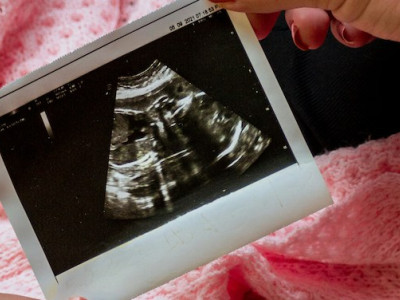Masonic Cancer Centre at the University of Minnesota presented the findings at the 256th National Meeting & Exposition of the American Chemical Society (ACS). The ACS does not conduct research, but says it “publishes and publicises peer-reviewed scientific studies.” This highlights the first problem: this isn’t a published study, let alone a peer-reviewed one.
Dr. Romel Dator and Dr Silvia Balbo recruited five e-cigarette users. Here’s the second problem: the five subjects were also smokers. Already, the methodology is so shoddy it doesn’t bare discussion. The pair collected saliva samples before and after vaping for 15 minutes. They claim to have discovered higher levels of formaldehyde, acrolein and methylglyoxal.
This raises further problems: what devices were used? What was the resistance, the wattage and the wick material? What liquid was used? Absolutely no information is available. Tag this with the sample size and choice of subjects and this is looking to be a stunningly poor piece of scientific research – yet it has spread like a case of dysentery across media platforms.
Plus, most importantly, there are zero details of the levels detected and whether these chemicals exist within acceptable limits. It is an emotive subject, but often lacks clarity because reporters fail to add that compounds like formaldehyde occur naturally within the body, which highlights the need for researchers to disclose the level of dose recorded.
“Formaldehyde is a normal, essential human metabolite with a biological half-life of about 1.5 minutes. It is endogenously produced and is involved with methylation reactions for and biosynthesis of some proteins and nucleic acids. It is also rapidly metabolised to formate and excreted in urine or to carbon dioxide and exhaled” - Clary and Sullivan 2001
Dator and Balbo both spoke about what they don’t know, what they didn’t measure and what they aren’t certain might happen in the future, but their comments have garnered more coverage than Farsalinos’ flavour study or a whole host of research with positive outcomes for harm reduction.
Does the problem exist with Dator and Balbo pushing a ridiculous study, the ACS for promoting something in line with their agenda on harm reduction, or media organisations for giving air to something that would be slammed down by responsible scientific journals? The answer is a case of all three, compounded by the levels of scientific illiteracy within the general population and journalists.
The author of the Mail’s piece is a case in point. Natalie Rahhal claims to be the Mail’s “Health Reporter” on her barely used Twitter profile. Her credentials? Three articles and a one-year course in journalism.
Prior to this, Natalie has claimed to be an “arts and culture journalist” for The Guardian (one article), a “freelance web designer” for a year, and an intellectual property specialist. Not bad for someone who was a “downtown restaurant employee” in 2011 and (going by the Mail piece) doesn’t understand the purpose of commas or proofreading.
Maybe Natalie has developed a sound understanding of science along the way, but it’s coverage like this that feeds into a situation like that exposed today by Rasmussen Reports: “just 20% of American Adults think smoking e-cigarettes is safer than smoking traditional tobacco cigarettes. Thirteen percent (13%) think e-cigarettes are less safe than traditional ones, while 50% think the health risk is about the same from both. Another 17% are not sure.”
Derek Yach, President of Smokefree Federation says this is a “terrible indictment against those actively spreading false, misleading and deceptive information,” regarding the dangers of vaping. “The consequences for millions of smokers? Confusion and continued smoking with its unacceptable risks.”
Emma Shields, Cancer Research UK, spoke about the Dator/Balbo study: “Overall, the evidence so far shows e-cigarettes are far less harmful than smoking. The most important thing to compare is the differences between vapers and tobacco cigarette users, which this study lacks. On-going research is important to monitor the long-term safety of e-cigarettes, but any potential risks are likely to be far outweighed by the well-established harms of tobacco."
Dave Cross
Journalist at POTVDave is a freelance writer; with articles on music, motorbikes, football, pop-science, vaping and tobacco harm reduction in Sounds, Melody Maker, UBG, AWoL, Bike, When Saturday Comes, Vape News Magazine, and syndicated across the Johnston Press group. He was published in an anthology of “Greatest Football Writing”, but still believes this was a mistake. Dave contributes sketches to comedy shows and used to co-host a radio sketch show. He’s worked with numerous vape companies to develop content for their websites.
Join the discussion
Expert Reaction to Pregnancy Study
Experts have reacted to the QML study of impacts of vaping in pregnancy and comparison with smoking
Study: Vapes Help Pregnant Quitters
A new study from Queen Mary University of London finds that vapes help pregnant smokers quit and pose no risk of poor pregnancy outcomes
IBVTA responds to UCL study
The Independent British Vape Trade Association has responded to University College London research and said the findings show the Government’s smoke-free ambition is stalling
Cochrane Review Echoes Swedish Success
The Cochrane Review echoes the Swedish approach, finding less harmful alternatives like vaping are superior to other quit methods, says Smoke Free Sweden












